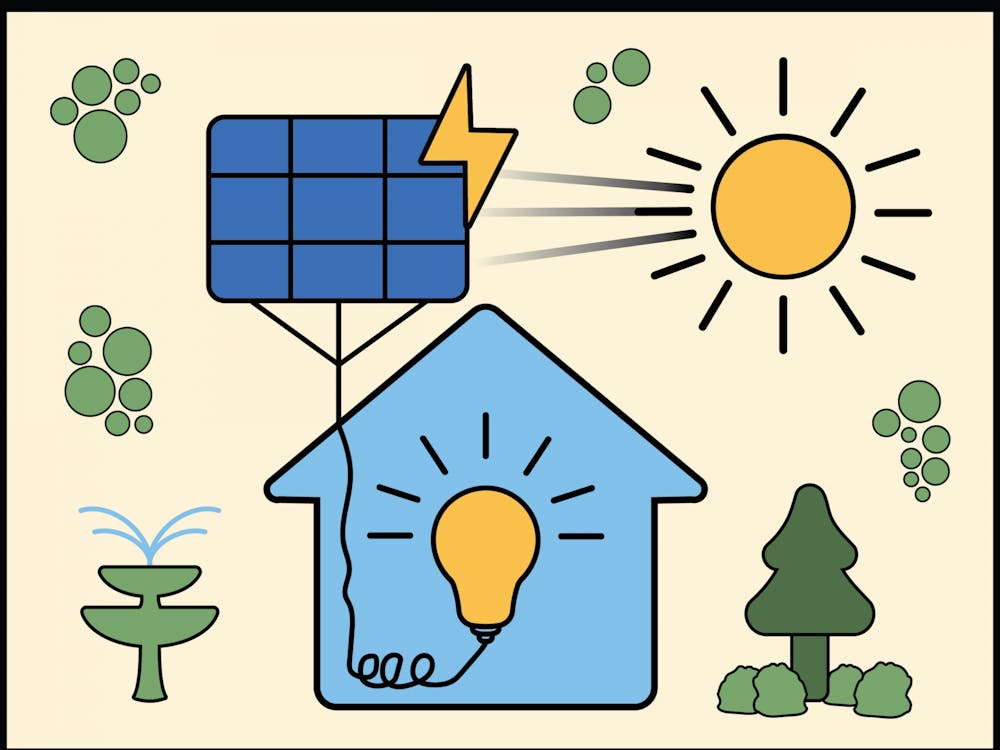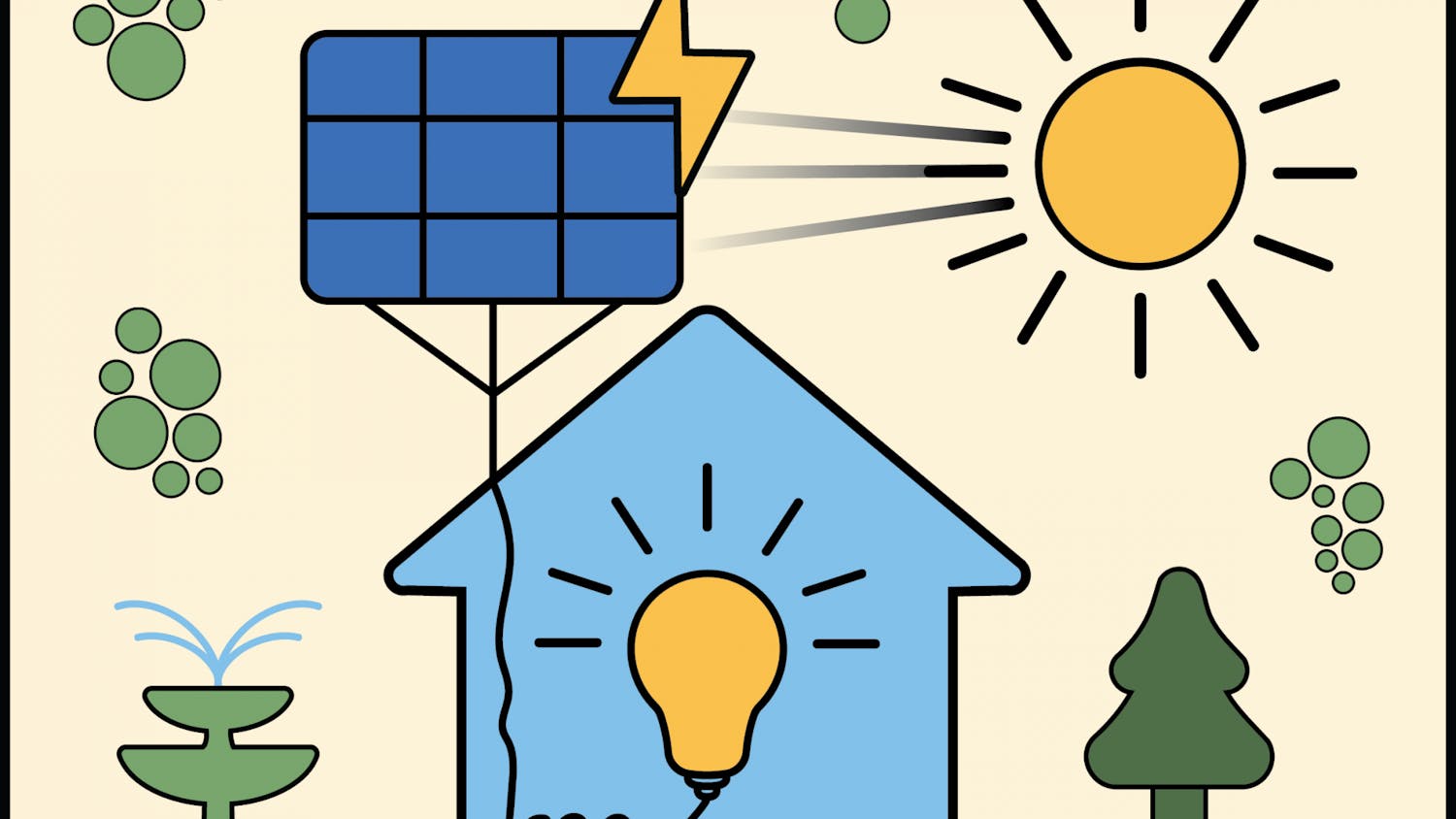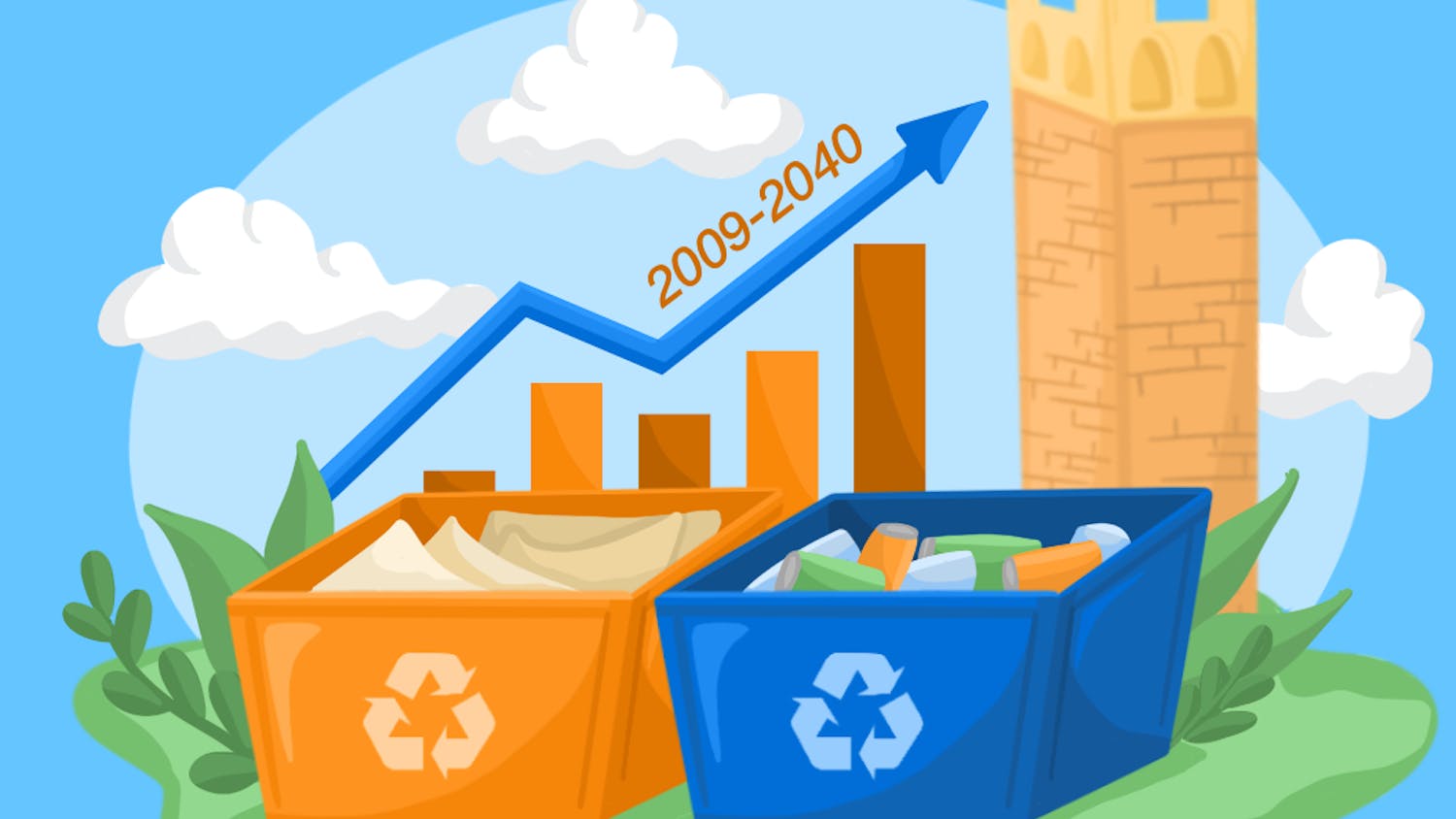Every student in their freshman economics class will learn: Supply needs to be met with demand. Supply of natural gas is no different.
Florida consumes the fifth most natural gas in the country to fuel nearly 75% of the state.
In June 2021, the UF Board of Trustees approved the $235 million Central Energy Plant Project to build a combined heat and power energy facility on campus. Set to begin construction this year, it will be the university’s largest energy provider, relieving UF of purchasing 750,000 pounds of steam from Duke Energy every year.
UF is currently in the process of revamping its Climate Action Plan, an outline combating emissions on campus, including a goal to become carbon neutral in 2025, meaning a net zero release of carbon dioxide into the atmosphere.
The plant is anticipated to reduce UF’s carbon footprint by 25% by shifting the majority of UF’s electricity to on-campus production and reducing the distance it needs to travel, Senior Counsel attorney Colt Little told The Alligator in 2021.
“From the point that UF initially committed to carbon neutrality in 2006, the path towards that goal has always been a blend of emissions reduction, emissions mitigation, and offsetting actions,” Amy Armstrong, UF spokesperson for Business Affairs, wrote in an email.
The Central Energy Plant is anticipated to reduce carbon emissions by burning natural gas, a process that releases half as much carbon into the atmosphere as burning coal. However, instead of releasing carbon, natural gas mainly releases methane gas, which traps heat in the atmosphere at a more potent level.
The approval sparked protests among students, as some viewed it as a step backward for a greener energy policy. Others wondered what impact it would have on UF’s goal for a carbon-neutral campus by 2025.
Stephen Mulkey, a UF sustainability science lecturer, said he believes the only way for UF to reach its goal by 2025 is if it simply doesn't count huge chunks of emissions. His expectations are so low that he has stopped paying attention, he wrote in an email.
“Both the UF and [Gainesville Regional Utilities] estimates are wildly unrealistic given the reality that there has been little meaningful effort to end reliance on fossil fuels,” he said.
GRU is doing as much as it can to produce renewable energy, said David Arreola, a former Gainesville city commissioner.
Gainesville is 55% powered by natural gas and 42% by renewable sources, a GRU spokesperson wrote in an email. Biomass supplies 41% of the city’s energy. In 2017, GRU bought a biomass plant that burns wood, which a GRU spokesperson said is sustainably sourced. In 2018, the Environmental Protection Agency declared the burning of biomass as carbon neutral, despite climate scientists’ concerns about the prospect.
Gainesville’s use of renewable energy dwarfs that of the state, which sits at 6% as of 2021.
“If the rest of the country could follow this model, we'd be reducing our carbon emissions by nearly half in the next decade,” Arreola said, “which is basically the pace that we have to start to set if we're going to avoid climate catastrophe.”
UF announced four finalists to construct the Central Energy Plant Project: Gator Campus Energy, Gator Campus Utility Partners, Swamp Power Partners and Gator Energy Services.
“We are confident that UF can continue to make progress toward carbon neutrality with any of the solutions being considered to meet campus’ thermal energy needs through steam, hot water, and chilled water,” Armstrong said.
Jacob York, president of UF’s Green Building Club, said the university does a lot right when it comes to sustainability. However, he said, when it comes to lowering the campus’ carbon footprint, it isn’t doing enough.
“There are people within the university and university leadership that are really trying to do the right thing,” he said. “For various reasons, [they] may have their hands tied.”
UF should show leadership on climate and emissions, but Mulkey has never seen any evidence that the university has acted with this intention.
The Central Energy Plant is expected to begin construction this year.
Contact Allessandra at ainzinna@alligator.org. Follow her on Twitter @ainzinna.

Allessandra is a third-year journalism major with a minor in English. In the past, she has covered local musicians and the cannabis industry. She is now the Student Government reporter for The Alligator. Allessandra paints and plays guitar in her free time.






